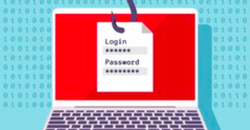Oct. 22, 2020
Interviews

Full reference: Frison-Roche, M.-A., "Health Data Hub est un coup de maître du Conseil d'Etat", interview realized by Olivia Dufour for Actu-juridiques, Lextenso, 22nd of October 2020
Read the news of 19th of October 2020 of the Newsletter MAFR - Law, Compliance, Regulation on which relies this interview: Conditions for the legality of a platform managed by an American company hosting European health data: French Conseil d'Etat decision
To go further, on the question of Compliance Law concerning Health Data Protection, read the news of 25th of August 2020: The always in expansion "Right to be Forgotten": a legitimate Oxymore in Compliance Law built on Information. Example of Cancer Survivors Protection
Sept. 10, 2020
Newsletter MAFR - Law, Compliance, Regulation

Full reference: Frison-Roche, M.-A., Responding to an email with "serious anomalies",transferring personal data, blocks reimbursement by the bank: French Cour de cassation, July 1st 2020, Newsletter MAFR - Law, Compliance, Regulation, 10th of September 2020
Read by freely subscribing other news of the Newsletter MAFR - Law, Compliance, Regulation
Summary of the news
"Phishing" is a kind of cyber criminality aiming to obtain, by sending fraudulent emails which look like to those sent by legitimate organisms, recipient's personal information in order to impersonate or steal him or her. As it is difficult to find the authors of "phishing" and to prove their intentionality in order to punish them directly, on mean to fight against "phishing" could be to entitle banks to secure their information network and, to accompany this obligation with a strong incentive, to convict them to reimburse the victims in case of robbery of their personal data.
In 2015, a client victime of this kind of fraud asked to his bank, the Crédit Mutuel, to reimburse him the amount stole, what the bank refused to do on the grounds that the client committed a fault, transferring its confidential information without checking the email, however grossly counterfeit. The Court of first instance gave reason to the client because although he committed this fault, he was in good faith. This judgment was broken by the Chambre commerciale de la Cour de cassation (French Judicial Supreme Court) by a decision of 1st of July 2020 which states that this serious negligence, exclusive of any consideration of good faith, justifies the absence of reimbursement by the bank.
___
From this particular case, we can draw three lessons:
- The Cour de Cassation states that good faith is not a salient criterion and that, as the bank must react when a banking account is objectively abnormal, the client must react face to an obviously abnormal email.
- The Cour de Cassation describes the repartition of proof burden. Proof obligations are alternatively distributed between the bank and its client. First, the bank must secure its information network but, secondly, the client must take every reasonable measure to preserve its safety. It results from this that, if the email seems normal, phishing damages must be supported by the bank, and more generally of by the firm, while if the email is obviously abnormal, they must be supported by the client, but the burden to prove the abnormality of the email must be supported by the firm and not by the client.
- Such a proof system shows that Compliance Law includes a pedagogic mission by educating each client in order to he or she would be able to distinguish among his or her emails, those which are normal and those which are obviously suspect. This pedagogic dimension, with the legal consequences associated to it, will not stop to spread.
______
Aug. 10, 2012
Publications

► Full Reference: M.-A. Frison-Roche, Le transfert de la compétence normative d'édiction des lois et règlements en matière de droit civil, de la métropole aux institutions propres à la Nouvelle-Calédonie. Étude pour le Congrès de Nouvelle-Calédonie (The transfer of the normative power to enact laws and decrees in the field of civil law from metropolitan France to institutions specific to New Caledonia. Study for the Congress of New Caledonia), 2012, 88 p.
____
La confection de ce rapport a été faite à partir des travaux sur les textes, des lectures et des réflexions, mais aussi de nombreuses rencontres avec les parties prenantes sur place. Le séjour et la remise du rapport ont donné lieu à de nombreuses interventions publiques.
L'on peut notamment se référer à la conférence Le transfert du droit civil, une opportunité pour la Nouvelle-Calédonie, donnée au Congrès de Nouvelle-Calédonie. En outre, de nombreuses interviewes ont été données à la télévision, dans le presse écrite et à la radio.
Lire la table des matière du rapport.
Lire le rapport dans son intégralité.
Lire un interview dans la presse à propos de ce travail.
Voir la conférence donnée en métropole à ce propos.
Lire le résumé du rapport ci-dessous.